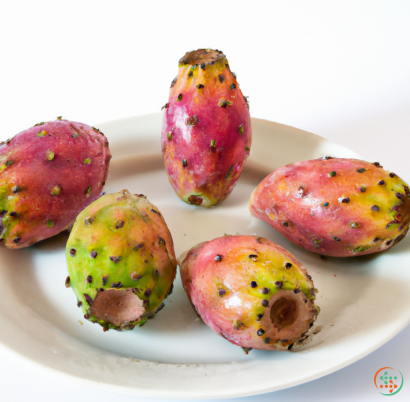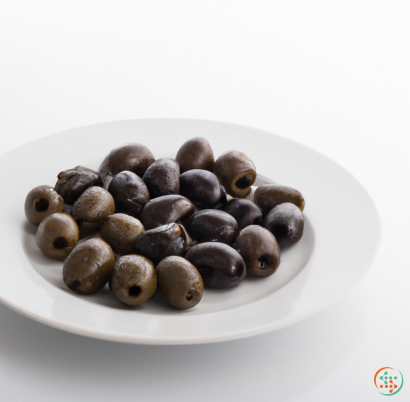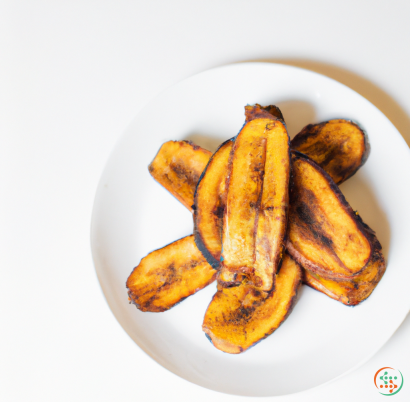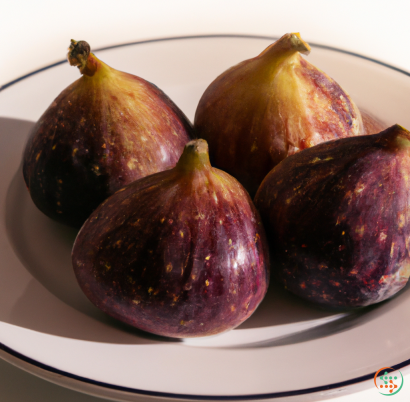Oranges
Oranges are one of the most popular and widely consumed fruits in the world. They come from the Citrus sinensis tree and are known for their sweet, juicy flavors and refreshing scent. Oranges have been a staple in many cultures for hundreds of years, and they continue to delight people with their sweet taste and bright colors.
Oranges contain a variety of essential vitamins and minerals, such as vitamin C, potassium, and folate, making them an important part of any healthy diet. Studies have even shown that oranges can help lower cholesterol levels, which can reduce the risk of heart disease. They’re also a great source of dietary fiber, which aids in digestion and helps keep you feeling full longer.
Oranges come in different varieties, including navel oranges, Valencia oranges, blood oranges, and clementines. All of these types of oranges share some of the same health benefits, but each type has different characteristics, flavors, and nutritional values. The differences between the types of oranges are primarily in the color, flavor, and texture.
Navel oranges are larger and rounder than other types of oranges, and they are usually seedless. Navel oranges are known for their sweeter flavor and thick skin. They usually have a light orange color, but some varieties can be darker orange.
Valencia oranges are slightly smaller than navel oranges, but they are still large and round. These oranges are known for having a slightly acidic flavor and are typically lighter in color. They also have thinner skins and contain seeds.
Blood oranges are smaller and often have a reddish hue or streaks across the rind. They’re known for their tart flavor and are often used in baking and cooking. The outer skin of a blood orange is slightly thicker than other types of oranges, and they contain fewer seeds.
Finally, clementines are the smallest type of orange and have a distinct sweet taste. They are often seedless, have very thin skin, and have a bright orange color. They’re often eaten out of hand and make great snacks.
No matter which type of orange you choose, they’re all an important source of nutrients, fiber, and antioxidants. Oranges are packed with vitamin C, which helps protect cells from damage and boosts your immune system. They also contain potassium, which helps keep your blood pressure within a healthy range. Oranges are naturally low in calories and fat, making them a great choice for those trying to lose weight.
In addition to being delicious, oranges are also a good source of dietary fiber. Dietary fiber can help reduce the risk of certain digestive issues, including constipation, diverticular disease, and hemorrhoids. Adding oranges to your diet can also reduce cholesterol levels and reduce your risk of developing coronary heart disease.
Overall, oranges are a great choice for anyone looking to add more nutrition to their diet. They’re tasty, affordable, and full of essential nutrients. Whether you like them plain or in a smoothie, oranges are a fruit that everyone should incorporate into their diets. Plus, they’re the perfect snack to enjoy all year round!
Focus on the science and ensure to include the following points:
Oranges: From Fruit Grove to Dinner Plate
The orange is one of the most popular fruits in the world, with a taste and nutrition value that have made them a favorite for centuries. But what many people may not realize is the incredible journey that oranges take from fruit grove to dinner plate. In this blog post, we will explore the science behind how an orange is created, picked, processed and ultimately enjoyed.
How an Orange is Created
Oranges are citrus fruits, meaning they come from the family of fruits known as Citrus. This family includes other popular fruits such as limes, lemons, and grapefruits. The development of an orange begins with tiny flower buds on the tree. These flowers are pollinated, either by wind or insects such as bees, with pollen from other orange trees of a different variety. Once this process is completed, the flower becomes a small greenish-yellow fruit.
As the orange grows, complex physical and chemical processes occur that define the shape, size, and structure of the fruit. On the inside, the segments of the orange separate and expand while the rind or peel thickens. Sugars, acids, and other nutrients constitute the majority of the parts of the orange and these are partly produced during the formation of the fruit by photosynthesis.
Finally, after the orange has had several months to mature on the tree, it is ready to be harvested.
Harvesting and Processing
Most oranges are picked by hand, often by workers with special tools that allow them to quickly harvest many oranges at once. Once oranges are picked, they are taken for processing which separates them into different categories depending upon their size and shape. The next stage is to package the oranges for transportation, as oranges are fragile and can easily be damaged if not properly handled.
Once the oranges are safely packaged, they are ready to be shipped to their destination. Different methods of transportation can be used, including truck, train, plane, and even boat. Temperature is an important factor to consider when transporting oranges since they are temperature-sensitive and need to remain cool during their journey.
The oranges are then placed in a storage facility or warehouse until they are ready to be transported to a grocery or retail store. At this facility, the oranges may also be washed, waxed, sized, and sorted to ensure quality.
From Grocery Store to Home
In the final step of the journey, the oranges are taken to their ultimate destination: your dinner plate. The oranges are have been sent to a grocery store near you, where you can purchase and enjoy them.
At the store they may be stored in a variety of ways depending on the store’s setup and display. Since oranges are sensitive to temperatures and light, they may be kept in a refrigerated section or in an area that is kept at an optimum temperature for fruit.
Once purchased, oranges can be kept for several weeks depending on how quickly you plan to consume them. To keep your oranges fresh for longer periods of time, it’s best to store them in a cool and dark place.
Enjoying Oranges
Now that you have an understanding of the journey that an orange takes before ending up on your dinner plate, it’s time to enjoy the fruit itself! Oranges are a great source of vitamins and minerals and can be enjoyed in a variety of ways.
You can eat oranges fresh or you can use them to make juices or jams. You can also add them to salads or other dishes as a fresh and zesty addition to a meal. Oranges also make a delicious snack, whether it be just eating the orange itself, or using it as an ingredient in smoothies or yogurt.
Conclusion
The journey of an orange from fruit grove to dinner plate is fascinating. Through this blog post, we explored the science behind how an orange is created and harvested and the various forms of transportation and storage that are essential for getting it from its source to your plate. We also discussed the nutritional benefits and various ways to enjoy oranges. By understanding where our food comes from, we can better appreciate the food we eat and be more mindful of how it is handled and prepared.
| Vitamin A | 0.011 mg | |
| Beta-Carotene | 0.071 mg | |
| Alpha-Carotene | 0.011 mg | |
| Vitamin E | 0.18 mg | |
| Vitamin C | 0.0532 grams | |
| Vitamin B1 | 0.09 mg | |
| Vitamin B2 | 0.04 mg | |
| Vitamin B3 | 0.28 mg | |
| Vitamin B4 | 0.0084 grams | |
| Vitamin B5 | 0.25 mg | |
| Vitamin B6 | 0.06 mg | |
| Vitamin B9 | 0.03 mg |
| Calcium | 0.04 grams |
Daily Value 1.3 g
|
| Iron | 0.1 mg |
Daily Value 0.018 g
|
| Magnesium | 0.01 grams |
Daily Value 0.4 g
|
| Phosphorus | 0.014 grams |
Daily Value 1.25 g
|
| Potassium | 0.181 grams |
Daily Value 4.7 g
|
| Zinc | 0.07 mg |
Daily Value 0.011 g
|
| Copper | 0.05 mg |
Daily Value 0.9 mg
|
| Manganese | 0.03 mg |
Daily Value 0.0023 g
|
| Selenium | 0.5 ug |
Daily Value 0.055 mg
|
| Tryptophan | 0.009 grams | |
| Threonine | 0.015 grams | |
| Isoleucine | 0.025 grams | |
| Leucine | 0.023 grams | |
| Lysine | 0.047 grams | |
| Methionine | 0.02 grams | |
| Cystine | 0.01 grams | |
| Phenylalanine | 0.031 grams | |
| Tyrosine | 0.016 grams | |
| Valine | 0.04 grams | |
| Arginine | 0.065 grams | |
| Histidine | 0.018 grams | |
| Alanine | 0.05 grams | |
| Aspartic Acid | 0.114 grams | |
| Glutamic Acid | 0.094 grams | |
| Glycine | 0.094 grams | |
| Proline | 0.046 grams | |
| Serine | 0.032 grams |
| Total Sugars | 0.131141 grams |
per 100g
|
| Palmitic acid (16:0) | 0.01 grams |
|
| Total Saturated fatty acids: | 0.01 g | |
| Oleic acid (18:1) | 0.02 grams |
|
| Total Monounsaturated fatty acids: | 0.02 g | |
| Linolenic acid (18:3) | 0.01 grams |
|
| Linoleic acid (18:2) | 0.02 grams |
|
| Total Polyunsaturated fatty acids: | 0.03 g | |







